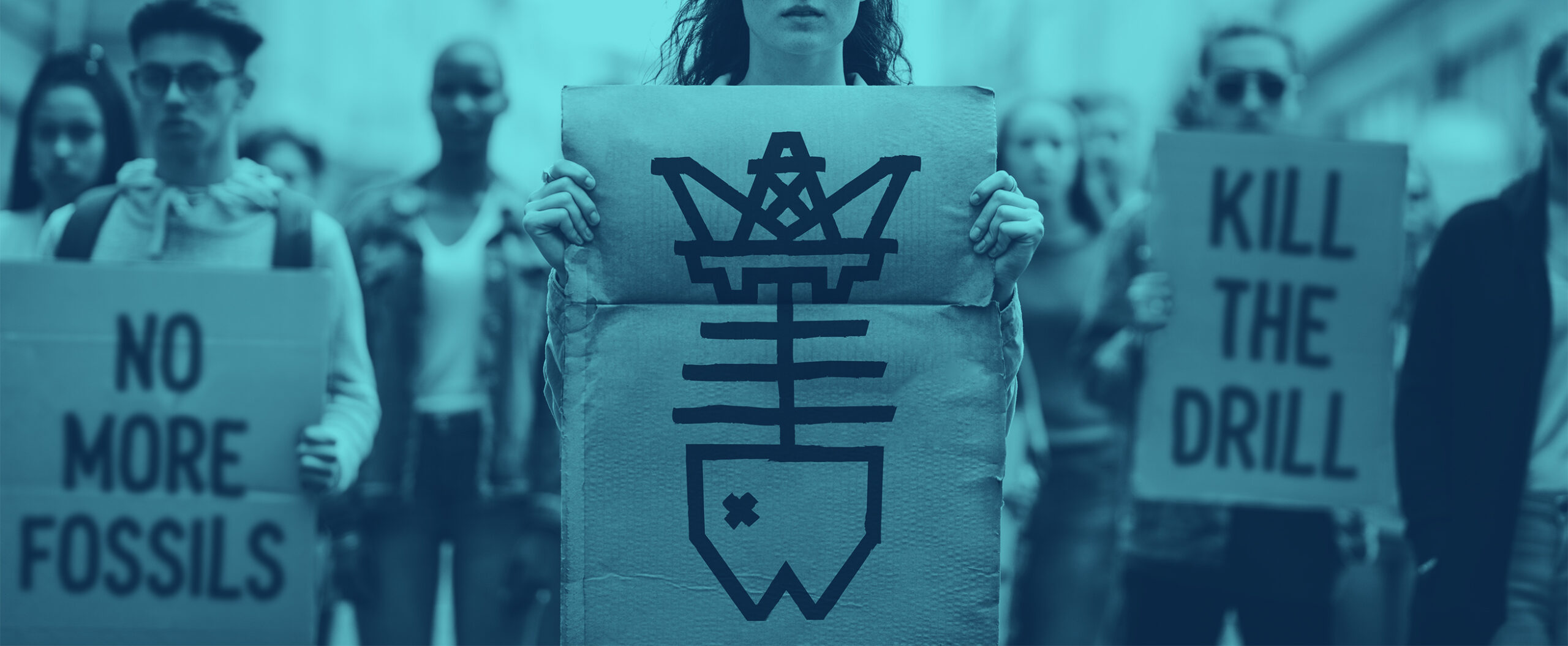21.11.23
THE NEW OCEAN ALLIANCE AGAINST OFFSHORE DRILLING: JOIN US!

As the UK government promises to ‘max out’ oil and gas in the North Sea, despite dire warnings from climate scientists, a new group – the Ocean Alliance Against Offshore Drilling – has formed to raise the alarm around the severe risk to marine wildlife, coastlines, beaches, and coastal communities posed by these developments.
Oil and gas extraction has a deeply destructive – and often overlooked – impact on UK sea life and 40% of the licences for oil and gas announced this summer are within marine ‘protected’ areas. The alliance, which includes NGOs such as Oceana, Greenpeace, the Blue Marine Foundation, Whale & Dolphin Conservation, and Surfers Against Sewage alongside academics and businesses like Finisterre and Oceanographic magazine, says these impacts are being largely ignored, at grave risk to ocean ecosystems and coastal communities.
As well as exacerbating the climate crisis, which drives marine heatwaves and ocean acidification, already a severe hazard for ocean health, oil and gas developments cause direct and immediate harm to UK wildlife, the alliance says.
In the exploration phase of these developments, seismic airgun surveys emit an ear-splitting noise that deafens dolphins, porpoises and other wildlife, threatening their health and survival.
Alongside the more well-publicised catastrophic oil spills, smaller, routine spillages from these developments are polluting the UK’s marine protected areas every day. In the past decade, over half of the oil accidentally spilled by UK offshore oil and gas operations ended up in marine protected areas (MPAs).
In addition to oil, the developments release toxic chemicals, including the neurotoxin mercury, along with microplastics that are ingested by animals up and down the food chain. Over 100 tonnes of microplastics were released into the North Sea by oil and gas operations in 2016 alone, estimates suggest.
This combined cocktail of pollution puts wildlife at risk of impaired breeding, disrupted feeding and death. Sperm whales, orca and beaked whales in the Northeast Faroe Shetland Channel MPA are just some of the wildlife that would be threatened by this wave of chemical and noise pollution brought by the new licences.
On the seafloor, the direct destruction metered out by the extraction process also threatens rare and unique wildlife. The East of Gannet and Montrose MPA, also under threat from the licences, is designed to protect the quahog clam, one of the longest-lived animals known to man, which can live for over 500 years. Drilling would destroy these communities, alongside ancient cold-water corals and rare deep-sea sponges. As well as capturing and storing carbon – an important tool in tackling global heating – species such as these provide vital fish spawning grounds.
Executive Director of Oceana UK Hugo Tagholm said: “Big Oil seems hell bent on destroying UK’s beautiful and unique ocean life for a quick profit – and in an act of wanton environmental vandalism, our government is inviting them in. Habitats and species that are critical for ocean health will be razed to the ground, and alongside this direct destruction, an unending flow of chronic pollution will threaten sea life, from plankton to whales.
In building this alliance, we are raising the alarm before it is too late, we are showing that these new licences will not improve UK energy security or lower our energy bills, but they will do irrevocable damage to our seas. Ever deeper developments also increase the risks of a major oil spill that could devastate coastlines, beaches, and coastal economies including fishing and tourism. I’m proud to stand shoulder to shoulder with fellow NGOs, academics and businesses to tell the government that we don’t want or need new oil and gas developments.
And it’s not just us: Three quarters of people in the UK are opposed to oil and gas developments in protected areas of the sea, polling has shown. Let’s end this now.”
Brendan Godley, Professor of Conservation Science at the University of Exeter said: “It is disappointing to see that as a country, our government is moving us further away from our net zero targets while many citizens are working for positive change. We need to be doubling down on our moves towards increased renewable energy, better insulated homes, more efficient food production, better public transport, and restoring nature – not pumping more oil and gas from the North Sea! Many of these moves will also improve our lives and create jobs as well as helping us avoid the costs of the worst impacts of future climate change.”